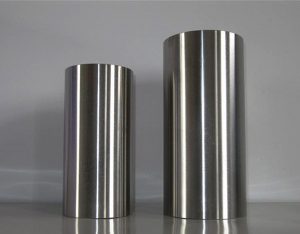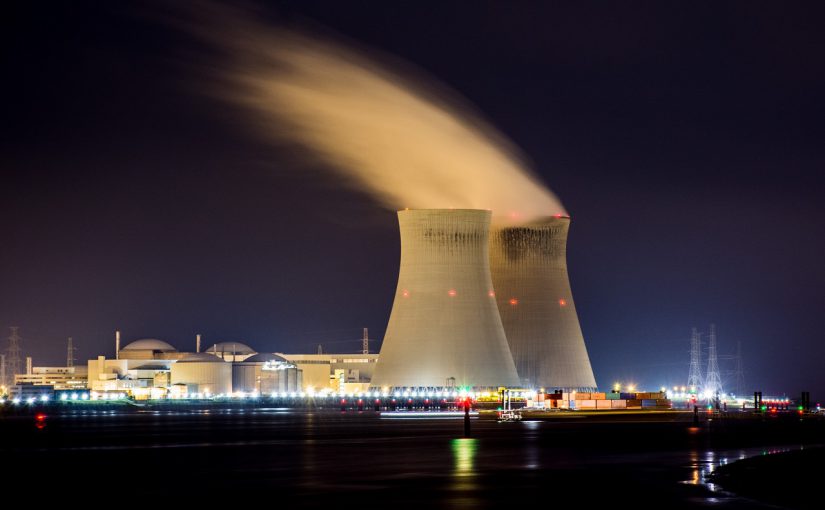Zirconium is an important material used in the production of nuclear fuel rods for nuclear reactors. In this article, we will explore zirconium’s unique properties that make it an ideal choice for use in nuclear reactors, as well as some of the challenges and concerns associated with its use.
Physical and Chemical Properties of Zirconium Fuel Rods
Zirconium fuel rods are composed primarily of zirconium metal, which has several important physical and chemical properties that make it an ideal material for use in nuclear reactors. These include:
- High melting point: Zirconium has a high melting point of 1855°C, which makes it able to withstand the extreme temperatures generated by nuclear fission reactions.
- Low thermal neutron absorption: Zirconium has a low cross section for absorbing thermal neutrons, which are the neutrons that slow down as they collide with other atoms. This makes it an ideal material for use as cladding around fuel pellets, as it does not interfere with the nuclear reactions taking place inside the fuel pellets.
- Excellent corrosion resistance: Zirconium is highly resistant to corrosion, particularly in high-temperature, high-pressure environments such as those found in nuclear reactors.
- Good mechanical properties: Zirconium has good mechanical properties, including high strength, ductility, and toughness, which help to ensure the integrity and safety of the fuel rods.

Advantages of Using Zirconium as Nuclear Fuel
The use of zirconium as a nuclear fuel has several advantages, including:
- High thermal conductivity: Zirconium has a high thermal conductivity, which helps to efficiently transfer heat away from the fuel pellets to the coolant in the reactor.
- Low neutron absorption: As mentioned earlier, zirconium has a low cross section for absorbing thermal neutrons, which allows the neutrons to pass through the cladding and interact with the fuel pellets, resulting in sustained nuclear reactions.
- Excellent corrosion resistance: Zirconium is highly resistant to corrosion, which is important in preventing the release of radioactive materials into the environment.
- Readily available: Zirconium is abundant in the earth’s crust and is relatively easy to mine and process, making it an economically viable choice for use in nuclear reactors.
Disadvantages of Using Zirconium as Nuclear Fuel
However, there are also some disadvantages to using zirconium as nuclear fuel, including:
- Potential for hydrogen buildup: When zirconium is exposed to water at high temperatures, it can react with the water to produce hydrogen gas, which can build up inside the fuel rods and potentially lead to explosions or other safety issues if not properly managed.
- Radioactive waste: Like all materials used in nuclear reactors, zirconium fuel rods eventually become radioactive and must be properly disposed of once they are no longer usable. This can be a time-consuming and expensive process.
- Regulatory concerns: The use of zirconium as nuclear fuel is subject to strict regulatory oversight to ensure the safety of workers, nearby communities, and the environment. Compliance with these regulations can be costly and time-consuming for nuclear power plant operators.
Safety Concerns and Regulations
Due to the potential hazards associated with the use of zirconium as nuclear fuel, there are several safety concerns and regulations in place to ensure the safe operation of nuclear reactors. These include:
- Inspections and monitoring: Nuclear power plants are subject to regular inspections and monitoring by regulatory agencies to ensure compliance with safety standards.
- Emergency preparedness plans: Nuclear power plants must have detailed emergency preparedness plans in place in case of an accident or other emergency situations.
- Worker training and protection: Nuclear power plant workers must undergo extensive training on safety procedures and must be provided with appropriate protective gear and equipment when working with radioactive materials.
Conclusion
Zirconium is a unique and important material in the production of nuclear fuel rods. Its high melting point, low thermal neutron absorption, excellent corrosion resistance, and good mechanical properties make it an ideal choice for use in nuclear reactors. However, there are also some challenges and concerns associated with its use, including the potential for hydrogen buildup, radioactive waste, and regulatory compliance. As such, the use of zirconium as nuclear fuel is subject to strict safety regulations and oversight to ensure the safety of workers, nearby communities, and the environment.
For more information about zirconium or other metals, please visit https://www.samaterials.com/.
